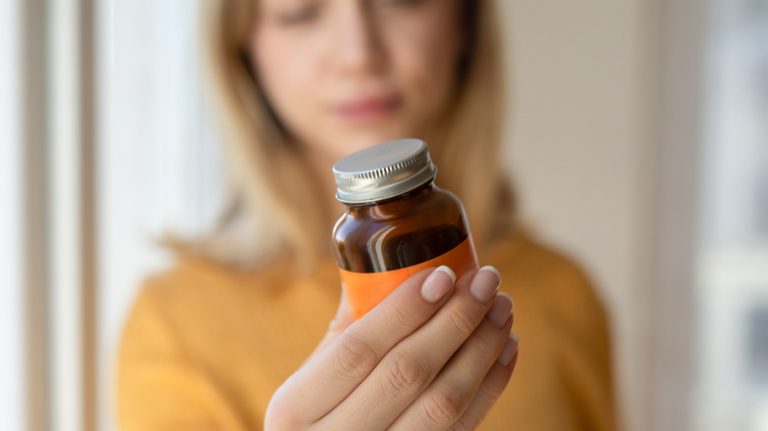
When your cholesterol levels are above normal for your age, your doctor may recommend different strategies to decrease your “bad” low-density lipoprotein (LDL) cholesterol and increase your “good” high-density lipoprotein (HDL) cholesterol. Common approaches include consuming cholesterol-lowering foods daily, exercising regularly, or taking medications like statins. However, there’s a suggestion you might not be familiar with: boosting your intake of certain B vitamins.
There are eight types of B vitamins, including B1 through B3, B5 through B7, B9, and B12. The B vitamin most historically linked to lowering cholesterol is vitamin B3, also known as niacin. (However, it’s not the only B vitamin that might help; more on that later.)
According to the U.S. National Institutes of Health (NIH), niacin plays a role in cholesterol processing in the body. As a result, consuming niacin in higher doses than usual may help decrease your LDL cholesterol and increase your HDL cholesterol by up to 30%.
Downsides to treatment with a B vitamin supplement

There’s a caveat, though. To achieve results, you have to take much more niacin than you’d typically consume. How much niacin might your doctor advise? Typically, this ranges from 500 to 3,000 milligrams daily. For context, the NIH recommends a dietary niacin intake of 14 milligrams for adult women and 16 milligrams for adult men.
As you can see, therapeutic niacin levels are significantly higher than everyday levels. You shouldn’t take large amounts of niacin without consulting a healthcare professional first, as excessive niacin can lead to serious side effects such as gastrointestinal discomfort, diarrhea, skin irritation, increased heart rate, and vomiting.
If you’re uncertain about whether niacin is worth considering, you’re not alone. Some experts argue that the risks associated with excessive niacin consumption may outweigh the potential benefits.
Alternatives to high-dose niacin supplementation

According to Dr. Stanley Hazen, research has uncovered reasons not to recommend vitamin B3 supplementation for managing high cholesterol levels (via Cleveland Clinic). “We found that 1 in 4 people in both the United States and European cohorts had high enough levels of 4PY to correspond to a doubling of the risk for heart attack, stroke or death,” he stated. (4PY is a byproduct of niacin linked to inflammation of the blood vessels.)
If you and your doctor determine that high-dose niacin isn’t suitable for you, you can still work on lowering your high cholesterol levels by consuming more foods rich in vitamin B3, like chicken, peanuts, and mushrooms. A 2022 study in Clinical Nutrition examined dietary intake data of 211,567 individuals aged 40 or older from Korea. It found that those who regularly consumed more than the suggested daily intake of niacin (based on gender and age) had lower incidences of high cholesterol than those who did not.
And here’s a final positive note about B vitamins: Two B vitamins other than niacin might offer some level of protection against rising cholesterol, according to clinical experiments. Specifically, a 2020 trial from the Asia Pacific Journal of Clinical Nutrition found that subjects who took folic acid (B9) and pyridoxine (B6) for 12 weeks experienced lower total cholesterol and higher HDL cholesterol.
“`




